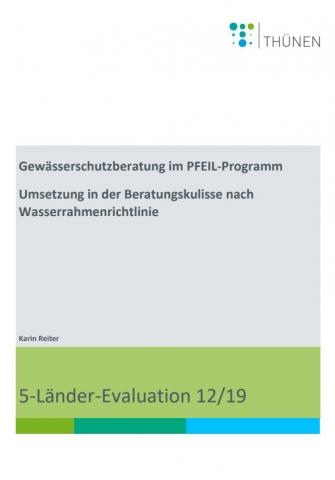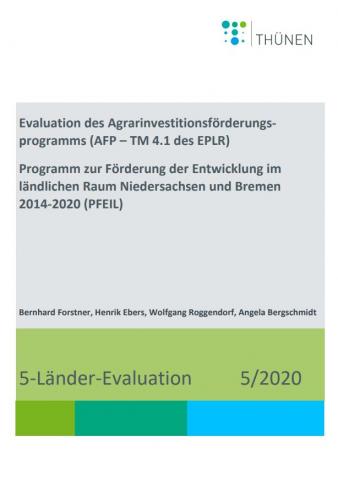
The ongoing 2018 evaluation of the ‘National Network for Rural Areas Germany’ evaluates the results, their relevance and the implementation of the program’s objectives in the period 01.01. - 31.12.2018.

The ongoing 2018 evaluation of the ‘National Network for Rural Areas Germany’ evaluates the results, their relevance and the implementation of the program’s objectives in the period 01.01. - 31.12.2018.

This report provides an overview of the problems in agriculture and the relevance of the agricultural investment support in the NRW Rural Areas. To obtain up-to-date information on the funded projects and their effects with regard to the main funding goals, a written survey of the grant recipients (beneficiaries) for the funding years 2014 to 2016 was carried out in 2018. Together with the approval data and the investment concepts, before and after comparisons could be carried out. The results obtained allow some conclusions and recommendations.

Since 2016, the range of water protection advice, which was previously restricted to drinking water catchment areas, has been extended to areas that are in a poor chemical condition according to the Water Framework Directive (WFD). The WFD advice is aimed at agricultural businesses and is free of charge for them. The evaluation shows that the WFD advice is organizationally and structurally targeted.

This report assesses the contribution of the RDP to Focus Area 4A to the conservation and development of biological diversity.

This report first gives an overview of the problems in agriculture and the relevance of agricultural investment support in Lower Saxony and Bremen. In order to obtain up-to-date information on the funded projects and their effects with regard to the main funding goals, a written survey of the grant recipients (beneficiaries) for the funding years 2014 to 2016 was carried out in 2018. Together with the approval data and the investment concepts, before and after comparisons could be carried out. The results obtained allow some conclusions and recommendations.

The funding measure ‘Creating transparency - from the shop counter to the producer’ (EAFRD code 16.9) is intended to support both the cooperation and networking of different actors in rural areas and the development of a knowledge base. In this report, the first implementation period, in which from November 2016 to June 2018 a total of 43 regional educational institutions (two of them in Bremen) were funded, is examined in more detail. The focus is on the recognised regional educational institutions and their (network) activities as well as the farmers who open their business as a ‘learning place farm’.

The case study report is based on funding documents and data as well as case studies in seven municipalities in Hesse. Due to the great importance of functioning paths for the development of rural areas, there is also a high need for corresponding funding in the coming EAFRD funding period.

This report shows the results of the evaluation activities of LEADER (M19) as well as the measures for village development (TM 7.1 and TM 7.4).

This report is an assessment of the implementation of the LEADER measure of the RDP Brandenburg-Berlin 2014 - 2020

This report provides an overview of the implementation of the RDP in the previous year. For better understanding, the report was written for outsiders at the measure level.